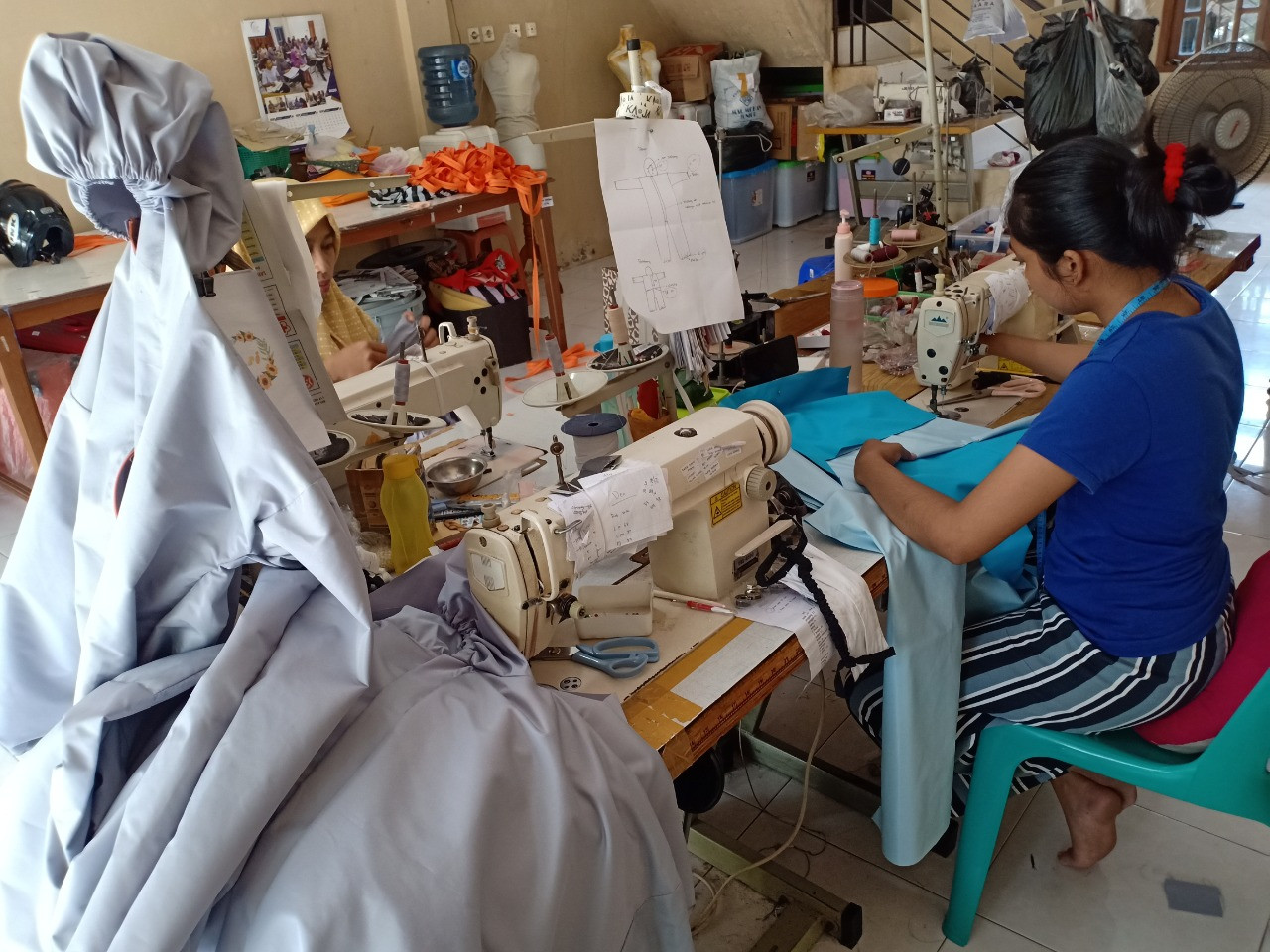Popular Reads
Top Results
Can't find what you're looking for?
View all search resultsPopular Reads
Top Results
Can't find what you're looking for?
View all search resultsBusiness players demand Rp 625t in additional stimulus
Change text size
Gift Premium Articles
to Anyone
I
ndonesian business players are demanding the government provide an additional stimulus package of Rp 625.1 trillion (US$44.6 billion) in working capital to help them cope with pandemic-induced economic strains, the Indonesian Employers Association (Apindo) has said.
The textile industry has requested the largest amount in assistance, Rp 283.1 trillion, while the food and beverage industry and sock manufacturers requested Rp 200 trillion and Rp 99 trillion in assistance, respectively, according to calculations compiled by Apindo.
Meanwhile, the hotel and restaurant industry, among the hardest hit by the pandemic, has requested Rp 42.6 trillion, as COVID-19 restrictions have led to steep decline in travel.
“We really hope working capital [will be supplied] for the industry. It is very important,” Apindo chairman Hariyadi Sukamdani said during a virtual discussion on June 5.
Despite the previous stimulus packages disbursed by the government, Indonesia’s economy grew by just 2.97 percent in the first quarter, the weakest rate in almost two decades. Meanwhile, large-scale social restrictions have also forced businesses and factories to shut operations.
Hariyadi said that due to economic pressures caused by the pandemic, textile companies had furloughed seven out of 10 workers, while food and beverage companies could only pay half of their employees’ wages.
The business players association also demanded the stimulus be disbursed over the course of a year, and also requested relaxation of electricity and gas payments to help cut the businesses’ operational costs.
Indonesia’s Purchasing Managers Index (PMI), a gauge of the nation’s manufacturing activities, hit 28.6 points in May, rebounding from 27.5 the previous month, but still far below the 50-point benchmark that indicates growth, according to market consultancy firm IHS Markit.
The government recently announced that the state budget to fight COVID-19 had been increased to Rp 677.2 trillion, up from the Rp 641.17 trillion allocation in May and the initial allocation of Rp 405.1 trillion.
About Rp 120.6 trillion will be allocated for tax incentives for larger entities, while Rp 44.57 trillion will be used to provide a stimulus for state-owned enterprises (SOEs) and labor-intensive businesses.
Meanwhile, the government also plans to provide a Rp 25 trillion stimulus package that includes airfare and hotel discounts to speed up the recovery of the travel industry.
Hariyadi, who also serves as the chairman of the Indonesian Hotel and Restaurant Association (PHRI), said the existing stimulus plan was not sufficient, as the tourism sector had suffered Rp 70 trillion in estimated losses between January and April this year.
More than 2,000 hotels and 8,000 restaurants have been forced to close their operations, Hariyadi stated.
Under the current trajectory, the food and beverage industry is projected to bounce back in three months while other industries that rely quite heavily on exports, like the auto, textile and shoe industries, may need at least nine months to recover, according to Apindo.
Meanwhile, consumer goods manufacturer PT Unilever Indonesia has managed to buck the declining economic trend by producing highly sought after sanitary products.
It initiated a hundredfold increase in the production of hand sanitizer, as demand for the product has soared during the health crisis.
By cutting the product development process to six weeks from the usual six months, the firm also introduced a new product line called Sahaja, which includes a disinfectant spray to clean sajadah (prayer mats), in April.
“The pace of innovation is very quick, to keep up with what the public needs,” the firm’s head of external affairs, Ribut Tri Purwanti, said during the same online talk.










